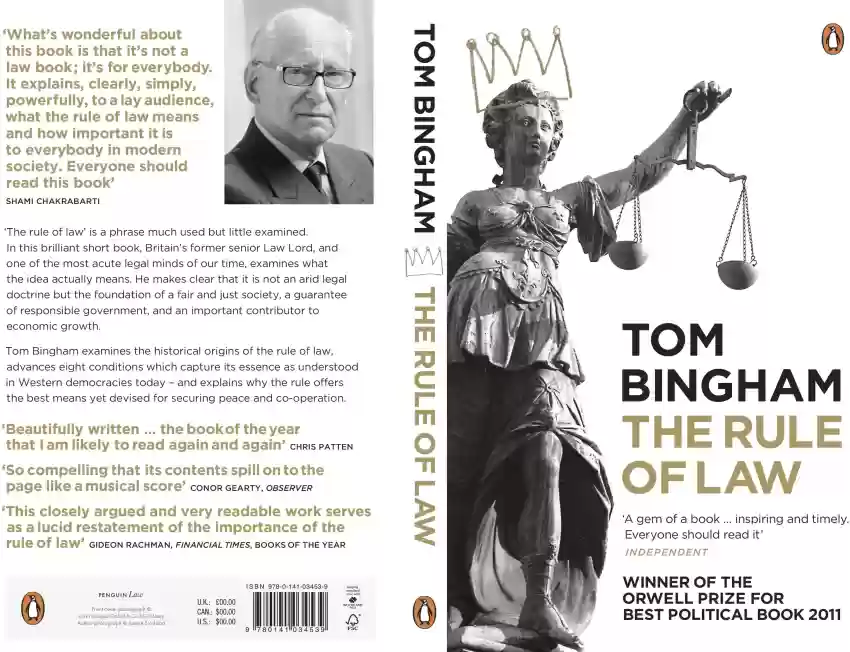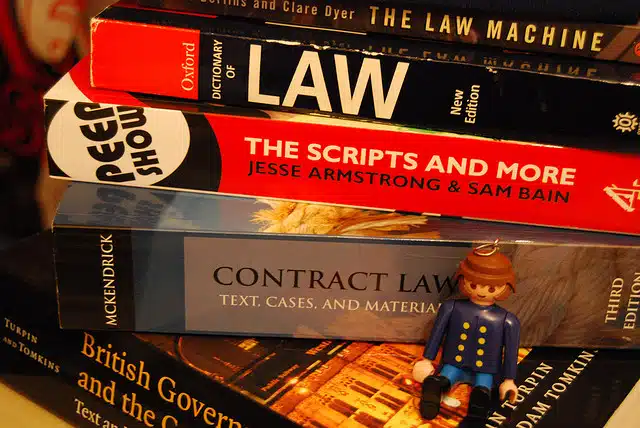Law Student : Becoming a successful lawyer involves more than just memorizing legal codes and case precedents. It requires a deep understanding of the law’s principles, history, and impact on society. Whether you’re a budding law student or already immersed in your legal studies, expanding your reading beyond textbooks can enrich your understanding of the law and its complexities. Here are ten books every law student should read to gain a well-rounded perspective on the legal profession.
1. “To Kill a Mockingbird” by Harper Lee
Harper Lee’s timeless classic, “To Kill a Mockingbird,” is a must-read for any aspiring lawyer. Set in the racially charged atmosphere of the American South during the 1930s, the novel follows Atticus Finch, a principled lawyer who defends a black man falsely accused of raping a white woman. Through the eyes of Atticus’s daughter, Scout, readers witness the power of empathy, integrity, and the struggle for justice in the face of prejudice. This novel teaches law students invaluable lessons about the importance of upholding the rule of law, regardless of societal pressures.
2. “The Rule of Law” by Tom Bingham

In “The Rule of Law,” Tom Bingham, a former senior British judge, explores the fundamental principles that underpin a just and fair legal system. Bingham argues that the rule of law is essential for maintaining order, protecting individual rights, and preventing the abuse of power by governments. This book offers law students a comprehensive understanding of the rule of law’s significance and its implications for society.
3. “The Nine: Inside the Secret World of the Supreme Court” by Jeffrey Toobin
Jeffrey Toobin’s “The Nine” provides a captivating insider’s look into the inner workings of the United States Supreme Court. Through in-depth research and interviews with key figures, Toobin offers a behind-the-scenes glimpse into the personalities, dynamics, and landmark cases that have shaped America’s highest court. Law students will gain valuable insights into how the Supreme Court operates and the profound impact its decisions have on American law and society.
4. “The Concept of Law” by H.L.A. Hart
H.L.A. Hart’s “The Concept of Law” is a seminal work in legal philosophy that examines the nature of law and its relationship to morality. Hart distinguishes between legal obligations and moral obligations, arguing that while the law can influence morality, it is ultimately a distinct social phenomenon with its own internal logic and rules. This book challenges law students to critically analyze the nature of law and the complexities of legal reasoning.
5. “Just Mercy: A Story of Justice and Redemption” by Bryan Stevenson
Bryan Stevenson’s “Just Mercy” offers a powerful account of his experiences as a defense attorney fighting for the rights of condemned prisoners on death row. Through compelling narratives and personal anecdotes, Stevenson highlights the flaws and injustices inherent in the American criminal justice system, particularly concerning racial inequality and the death penalty. This book inspires law students to confront systemic injustices and advocate for meaningful reform within the legal system.
6. “The Oxford Handbook of Jurisprudence and Philosophy of Law” edited by Jules Coleman and Scott Shapiro
“The Oxford Handbook of Jurisprudence and Philosophy of Law” is an indispensable resource for law students seeking a deeper understanding of legal theory and philosophy. This comprehensive anthology features essays from leading scholars in the field, covering a wide range of topics including legal positivism, natural law theory, legal realism, and critical legal studies. By engaging with diverse philosophical perspectives, law students can develop their analytical skills and broaden their intellectual horizons.
7. “Gideon’s Trumpet” by Anthony Lewis

Anthony Lewis’s “Gideon’s Trumpet” tells the remarkable true story of Clarence Earl Gideon, a poor Florida man who fought for his right to legal representation all the way to the United States Supreme Court. Gideon’s landmark case, Gideon v. Wainwright, established the constitutional right to counsel for indigent defendants in criminal cases. Through Gideon’s journey, law students learn about the importance of access to justice and the role of the courts in safeguarding individual rights.
8. “Thinking, Fast and Slow” by Daniel Kahneman
While not explicitly about law, Daniel Kahneman’s “Thinking, Fast and Slow” offers valuable insights into human decision-making and cognitive biases that are relevant to the legal profession. Kahneman, a Nobel Prize-winning psychologist, explores the two systems of thinking that drive our behavior: intuitive, fast thinking, and deliberate, slow thinking. Law students can apply these principles to understand how judges, jurors, and lawyers make decisions and how they can effectively navigate cognitive biases in legal practice.
9. “The Path of the Law” by Oliver Wendell Holmes Jr.
Oliver Wendell Holmes Jr.’s essay, “The Path of the Law,” is a classic work that explores the nature of law and its relationship to society. Holmes famously argues that law is not based on abstract moral principles but is instead a prediction of how courts will decide cases in the future. He emphasizes the importance of understanding the law as it is, rather than how it ought to be, and the role of judges in interpreting and applying legal rules. This essay challenges law students to critically examine the pragmatic realities of the legal system.
10. “Letters to a Law Student” by Nicholas J. McBride
“Letters to a Law Student” by Nicholas J. McBride provides practical advice and guidance for aspiring lawyers navigating their legal education and career paths. Through a series of letters addressing common concerns and questions, McBride offers insights into studying law effectively, developing critical thinking skills, and pursuing a successful legal career. This book serves as a valuable companion for law students at all stages of their academic journey.
Conclusion
Expanding your reading beyond textbooks to include a diverse range of literature can enhance your understanding of the law and its broader societal implications. The ten books listed above offer valuable perspectives on legal philosophy, history, ethics, and practice that are essential for every law student’s intellectual development. By engaging with these works, aspiring lawyers can deepen their appreciation for the complexities of the legal profession and become more thoughtful and informed advocates for justice in society.
Also Refer : Lawyer Tips for a Smooth Custody Battle
FAQs
What makes these books essential for law students?
These books offer valuable insights into legal philosophy, history, and practice, enhancing students’ understanding of the law’s complexities and its impact on society.
Are these books suitable for all levels of law students?
Yes, these books cater to law students at various stages of their academic journey, from beginners to advanced learners, providing valuable perspectives and knowledge regardless of experience.
Can these books be helpful for non-law students interested in the legal field?
Absolutely! These books offer valuable insights into legal principles, ethics, and societal impact, making them beneficial for anyone interested in understanding the law and its role in shaping society.
How can law students incorporate these books into their study routine?
Law students can incorporate these books into their study routine by allocating specific time for reading, either as supplementary material alongside their coursework or during leisure hours to broaden their understanding of legal concepts.
Are there any specific recommendations for tackling these books effectively?
While there’s no one-size-fits-all approach, students can enhance their comprehension by taking notes, engaging in discussions with peers or professors, and reflecting on how the content relates to their legal studies and personal experiences.
Image Source : Freepik





